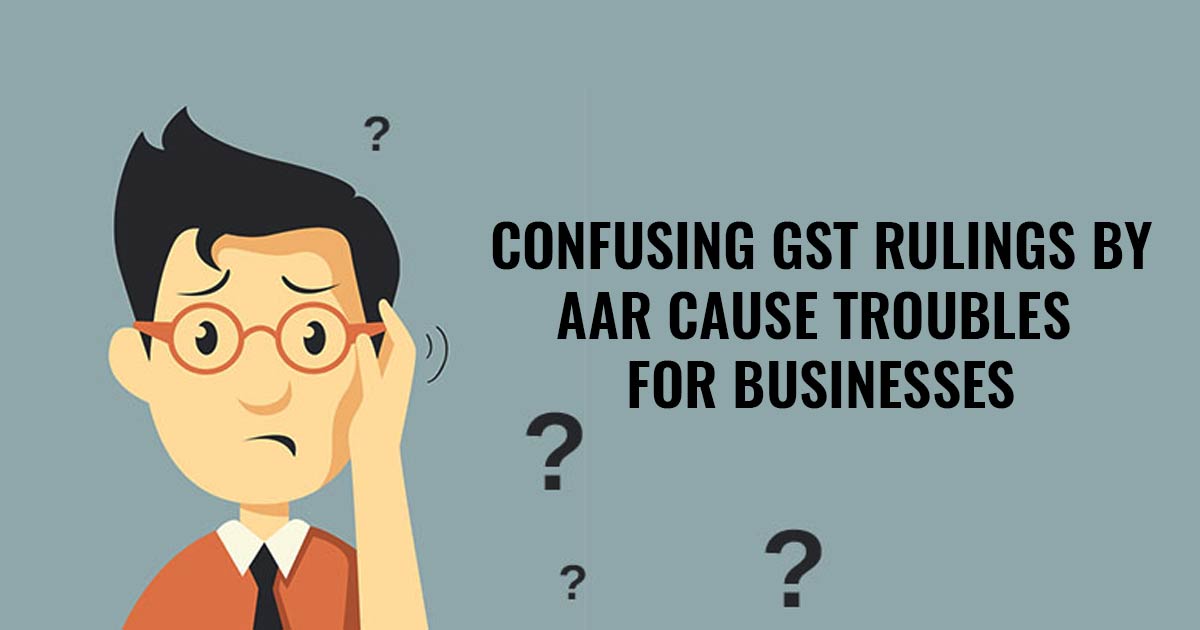For starters, Advance Ruling under GST is written decisions/clarifications issued by tax authorities against requests from individuals or businesses on specific doubts over proposed or already undertaken supply of goods/services. Authority for Advance Rulings (AAR) is a platform to resolve these doubts. However, a string of contrasting rulings by its state branches has raised quite a few eyebrows and there are voices now that question the sensibility and maturity of the state-wise structure.
Reportedly, one particular ruling is pegged to escalate tax and compliance burden across all verticals of the Indian Industry. The FAQ released by the AAR stated that financial sector institutes like Banks would attract GST for services offered by the Bank’s headquarters to its state units.
The AAR Rulings and Their Dilemma
Columbia Asia Hospitals Ruling by Karnataka bench states that GST is applicable on salaries of Headquarters or central unit employees as they render services to other state units of the hospital. The services are considered as supplies. Tax Experts believe that the law is flawed and implementation would further complicate matters.
The AAR Karnataka ruling implies that employer-employee relationship is valid only within the headquarter premises of the business/service or institute. But activities like transfer of salaries to employees in other state units of the business/service or institute will be considered as services and attract GST. Hence the employer-employee relationship between the head office and other state units are null and void under GST.
All activities will be considered as service and attract GST. This may force companies to reevaluate support or other services offered by the headquarter to other units. This valuation will determine the liable GST.
Some key points that would need a revisit include:
- This could force a restructuring. But the tax experts fear that when all is done and dusted, one would end up with a complex operations structure. Rajat Mohan, a partner at AMRG says, “Tax department could always find one violation or the other. The entire structure could get complicated when incentives or bonuses to these employees are to be divided among state units.”
- Further, it would exponentially increase compliance burden without either bearing any fruitful benefits for businesses or increasing tax revenue for the state.
Secondly, the AAR State bodies have made contrasting rulings on the same subject matter. The Maharashtra AAR ruled that 18% GST must be levied on solar equipment installation. However, the Karnataka AAR settled on 5% GST for the same service.
Finally, the AAR Delhi units ruling to overturn long practised zero-rating of exports by previously duty-free shops in Airport premises was met with stern protest and criticism.
The Reason Behind the AAR Rulings
- The Section 7(2) of the GST Act clearly states that supply of goods and services “when made in the course or furtherance of a business” shall be treated as a supply even if no money is charged for it.
While the above reason may seem to clearly state and cement the AAR Karnataka unit ruling, experts believe that the body would benefit by bringing a few judicial members on board. While a central body for addressing grievances and checking tax evasions is a noble idea. But contradictory rulings will remain part and parcel as long as the Central Government does not appoint judicial members too who can provide a wider perspective on law and its effects on the joint commissioner-level officers. As the Entry 1 of Schedule III of the CGST Act clearly states that “services by an employee to the employer in course of or in relation to his employment shall be neither treated as a supply of goods nor a supply of services.”
In conclusion, we can state that though enforceability of AARs orders rests completely on the shoulders of the assessees involved. But it would not take time for setting precedents that would adversely affect the taxpayer as well as attract tax authorities. The AAR was no doubt set up to minimize business queries and boost transactions. But a lack of consensus on applicable GST rates coupled with the complex interpretation of ambiguities may forced Government to seek a fresh path in the form of a new body sooner than later.









